
Cocteau Twins were a Scottish rock band active from 1979 to 1997. They were formed in Grangemouth by Robin Guthrie and Will Heggie (bass), adding Elizabeth Fraser (vocals) in 1981 and replacing Heggie with multi-instrumentalist Simon Raymonde in 1983. The group earned critical praise for their ethereal, effects-laden sound and the soprano vocals of Fraser, whose lyrics often eschew any recognisable language. They pioneered the 1980s alternative subgenre of dream pop and helped define what would become shoegaze.

AWB is the second studio album by the Scottish funk and soul band Average White Band, released in August 1974.
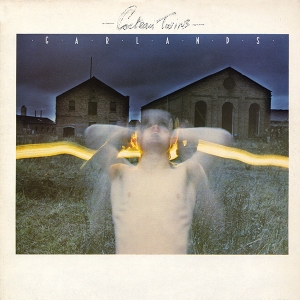
Garlands is the debut studio album by the Scottish alternative rock band Cocteau Twins. It was released on 10 July 1982 through the record label 4AD. It peaked in the Top 5 of the UK Independent Albums Chart and received support from BBC Radio 1 radio host John Peel.
The Wake are a British post-punk, synth-pop and later indie pop band, formed in Glasgow in 1981 by Gerard "Caesar" McInulty, Steven Allen (drums) and Joe Donnelly (bass), the latter replaced by Bobby Gillespie. Steven's sister Carolyn Allen also joined on keyboards, and remained in the band thereafter. Gillespie left the band in 1983, replaced by Martin Cunning and then by Alexander 'Mac' Macpherson.

Strawberry Switchblade were a Scottish pop duo formed in Glasgow in 1981 by Jill Bryson and Rose McDowall, best known for their song "Since Yesterday" from 1985, and their flamboyant clothing with bows and polka-dots.

Wings at the Speed of Sound is the fifth studio album by the British–American rock band Wings, released on 26 March 1976. Issued at the height of the band's popularity, it reached the top spot on the US album chart—the band's fourth consecutive album to do so—and peaked at number 2 on the UK album chart. Both singles from the album also reached the top 5 of the UK and US singles charts, with "Silly Love Songs" reaching number 1 in the US.

"Peppermint Pig" is a song by Scottish alternative rock band Cocteau Twins. It was released as both a single and 12" EP on 4 April 1983 by record label 4AD. Musically, the material was similar to their previous release, the 1982 EP Lullabies. It was the last release to feature original bassist Will Heggie.
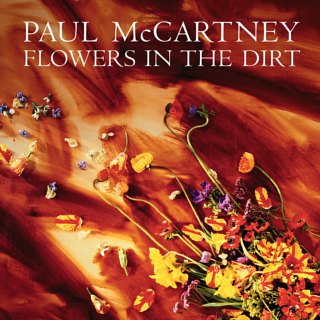
Flowers in the Dirt is the eighth solo studio album by Paul McCartney. The album was released on 5 June 1989 on Parlophone, as he was embarking on his first world tour since the Wings Over the World tour in 1975–76. It earned McCartney some of his best reviews for an album of original songs since Tug of War (1982). The album made number one in the United Kingdom and Norway and produced several hit singles. The album artwork was a collaboration between artist Brian Clarke, who painted the canvas and arranged the flowers, and Linda McCartney, who produced the cover photography.
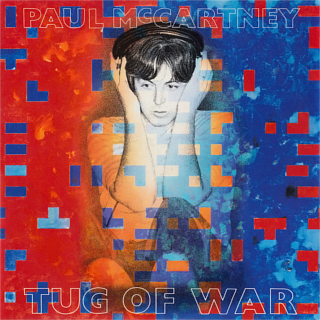
Tug of War is the third solo studio album by English musician Paul McCartney, released on 26 April 1982. It is his 11th album overall following the break up of the Beatles in 1970, his first album released after the dissolution of his band Wings the previous year, and his first album following the murder of his former songwriting partner John Lennon. The cover features an abstract oil painting by the artist Brian Clarke, a frequent McCartney collaborator, incorporating an overpainted transparency of a portrait of Paul taken by Linda McCartney.
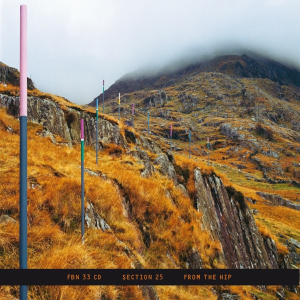
From the Hip is the third studio album by English post-punk and electronic band Section 25, released in March 1984 by Factory Records. Following on from their previous albums, Always Now and The Key of Dreams, it marked a major departure in terms of sound and scope. Abandoning their harsh original post-punk sound the band embarked upon a new journey into the realms of electronic and dance music, with the help of Bernard Sumner of New Order who co-produced the album at Rockfield Studios in Monmouthshire, Wales.

Love & Hate is the fourth studio album by Blackpool band Section 25 which was released in 1988 on Factory Records.

Dopesick is the third studio album by American sludge metal band Eyehategod, released on April 2, 1996. It was reissued in 2006 as part of Century Media's 10th Anniversary series with three bonus tracks that were recorded during the original Dopesick recording sessions.
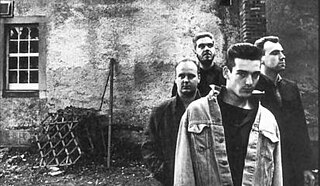
Lowlife were a Scottish alternative rock/dream pop band, active from 1985 to 1997. Although the group never obtained mainstream popularity, they developed a cult following that continues to this day.

Permanent Sleep is the debut studio album by Scottish post-punk band Lowlife. It was released in 1986 in Scotland by the independent music record label Nightshift Records.

Diminuendo is the second album by Lowlife, was released in 1987 in Scotland on the independent label Nightshift Records. The LP was recorded at Palladium Studios in Edinburgh, Scotland, and released in May.

From a Scream to a Whisper is a compilation album consisting of material taken from all of Lowlife's previously released singles, EPs and albums. No new or previously unavailable songs appeared on the album.
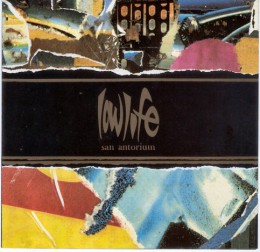
San Antorium was Lowlife's fourth album, released in 1991 in Scotland on Nightshift Records. The LP was recorded at Tower Studios in Glasgow, Scotland. Personnel changes prior to the album's recording involved the near-simultaneous departures of guitarist Hamish McIntosh and drummer Grant McDowall, who were replaced by Hugh Duggie and Greg Orr, respectively. Orr's role was somewhat limited as several of the tracks employed drum programming and/or drum loops. LTM Recordings reissued much of the band's entire back catalogue on CD in 2006, and San Antorium was released with five bonus tracks taken from the band's "Black Sessions" demo album.

Lullabies is the first EP by Scottish alternative rock band Cocteau Twins. It was released in October 1982, following their debut album, Garlands. The EP contained three non-album tracks, and featured a louder and more driving sound than the album.

Big Bags is an album by vibraphonist Milt Jackson featuring big band performances arranged by Tadd Dameron and Ernie Wilkins recorded in 1962 and released on the Riverside label.
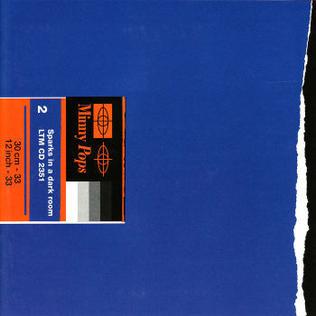
Sparks in a Dark Room is the second studio album by Dutch experimental electronic post-punk/ultra band Minny Pops. After signing to Factory Benelux in 1982 following their "noisy" and "goofy" debut album Different Measures, Drastic Movement (1979), the band settled into a new, less aggressive sound featuring influences of industrial music and funk. Recording Sparks in a Dark Room in late 1981, the band headed for a more clinical and clean sound. Considered a high point of the ultra movement, the record features cold, electronic tones and darkly humorous lyrics from lead singer and songwriter Wally van Middendorp.



















